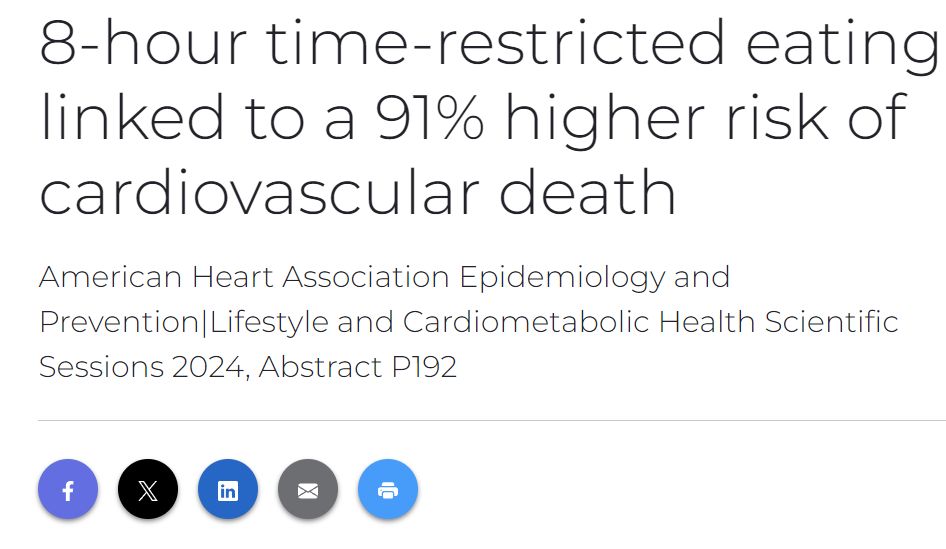Time-Restricted Eating and Cardiovascular Risk: New Insights from a Large-Scale Study
A recent study involving over 20,000 U.S. adults has sparked considerable interest in the medical and wellness communities due to its findings regarding the long-term effects of time-restricted eating. The research, presented at the American Heart Association’s Epidemiology and Prevention│Lifestyle and Cardiometabolic Scientific Sessions 2024 in Chicago, highlights potential risks associated with this popular dietary approach, particularly concerning cardiovascular health.
What is Time-Restricted Eating?
Time-restricted eating (TRE), a form of intermittent fasting, involves consuming all daily calories within a narrow time window each day. Typically, this window ranges from 4 to 12 hours, with the 16:8 schedule—eating within an 8-hour period and fasting for 16 hours—being among the most common. Previously, TRE has been linked to improvements in various cardiometabolic health indicators, such as blood pressure, blood glucose levels, and cholesterol.
Study Insights and Concerns
The study conducted by Victor Wenze Zhong, Ph.D., and his team at the Shanghai Jiao Tong University School of Medicine, explored the association between TRE and mortality, particularly from cardiovascular diseases. Their analysis revealed several concerning findings:
- Increased Risk of Cardiovascular Death: Individuals adhering to an 8-hour eating window exhibited a 91% higher risk of dying from cardiovascular disease compared to those who spread their meals over 12-16 hours.
- Higher Risk Among Specific Groups: The increased risk was notably pronounced in individuals already suffering from heart disease or cancer.
- No Reduction in Overall Mortality: The study found no evidence that TRE reduces the risk of death from all causes.
- Longer Eating Duration and Cancer Mortality: Interestingly, an eating window extending beyond 16 hours per day was linked to a reduced risk of cancer mortality among cancer patients.
Implications for Dietary Recommendations
The findings challenge the existing narrative that shorter eating windows universally contribute to better health outcomes. “While the short-term benefits of TRE are well-documented, our research suggests that such dietary patterns may not be beneficial in the long run, especially for individuals with pre-existing health conditions,” remarked Dr. Zhong. This underscores the need for personalized dietary guidelines that consider individual health profiles and existing conditions.
Study Limitations and Future Directions
The study’s reliance on self-reported dietary data and the observational nature of the research invites caution in interpretation. As such, future research should investigate the biological mechanisms that might explain the observed associations and explore whether similar patterns exist in different global populations.
Conclusion
The study serves as a critical reminder of the complexity of dietary interventions and their impacts on health. It highlights the importance of considering long-term consequences and individual variations when adopting popular dietary trends like time-restricted eating. As we await more detailed findings from this research, it becomes clear that what works as a short-term health strategy might not be advisable in the long-term context, particularly for those at heightened risk of cardiovascular issues.
Source:
- Poster at EPI-Lifestyle 2024 Association of 8-Hour Time-Restricted Eating with All-Cause and Cause-Specific Mortality

